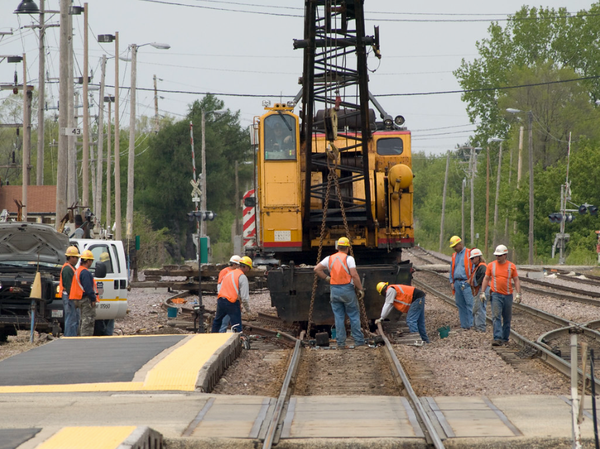A month ago, the nation was transfixed by the performance-art spectacle of Alex Jones’s live interview with Kanye West. Meanwhile, in Washington, something far more consequential for American workers was taking place: Congress voted to block a looming rail strike by imposing a contract that the railroad union membership had resoundingly rejected.
A triumphant President Biden signed the agreement the following day, with anemic protest from the Democratic Party’s self-proclaimed progressives. In fact, three-fourths of The Squad, including Rep. Alexandria Ocasio-Cortez, crossed the picket line and voted against the rail workers. Sen. Bernie Sanders attempted to rally opposition, but mostly attracted support from Republican colleagues like Josh Hawley, who tweeted before the vote: “GOP wants to be a working class party, or should want to. We’re about to have our first test vote—with the workers or with Biden.” In the end, more GOP senators voted against imposing the contract than Democrats.
Lawmakers averted the strike by using the Railway Labor Act to force an agreement. But before it could do this, Congress was supposed to enter a series of elaborate procedures meant to compel both sides to come to an agreement. This process is designed to, among other things, “focus public opinion on the participants in order to pressure the parties to voluntarily reach an agreement.”
As it happened, the pressure was mostly directed at just one of the parties in contention: the workers. After years of Covid-related virtue-signaling by Democrats, they might have attempted to “focus public opinion” on the demands of rail workers fighting for sick leave during a once-in-a generation pandemic. Instead, they and their corporate-media allies launched a fear-mongering campaign, warning of supply-chain disruptions and worsening inflation in the case of a strike.
Of course, there was a real risk that a rail strike would cause significant economic hardships for Americans. That’s exactly the reason it would have succeeded: When strikes are effective, it’s because they put massive pressure on bosses to accede to worker demands. But this also relies on workers having allies who will hold firm and ensure the public places blame where it’s due.
In 2013, as a director of Service Employees International Union Local 1021, I helped lead a historic strike for Bay Area Rapid Transit (BART) workers. One of the biggest challenges we faced was the question of whether transit workers should have the right to strike, considering the negative impact shutting down the trains would have had on the local economy. But across the Bay, despite mounting pressure to re-open a shuttered economy, fellow union members stood in solidarity with our workers. It was that solidarity that gave our rank-and-file members the strength to persevere and ultimately win a contract.
The fact that, in the more recent case, rail workers didn’t receive similar support from Big Labor, or from supposedly pro-labor politicians, is the latest indication that American workers are on their own.
“There are no more shortcuts in American politics.”
The realization that the Democrats are not on the side of workers should be the first step toward organizing new, decentralized, grassroots movements from the ground up—not the astroturfed, oligarch-funded mockeries of community organizing that are seemingly everywhere. I’m hearing that many rail workers are considering sick-outs or simply showing up for work and then refusing to do their jobs—a “soft strike,” if you will. We are likely to see more of this sort of tactic as labor unions and the politicians they bankroll fail to represent workers’ interests. There are still many talented organizers among the people, and they will fight back.
There are no more shortcuts in American politics. It’s time for working-class people to take a post-partisan approach to organizing around the issues that affect us all the most: stagnant wages, accessible housing, quality education, healthy food, and a better quality of life for our families.
